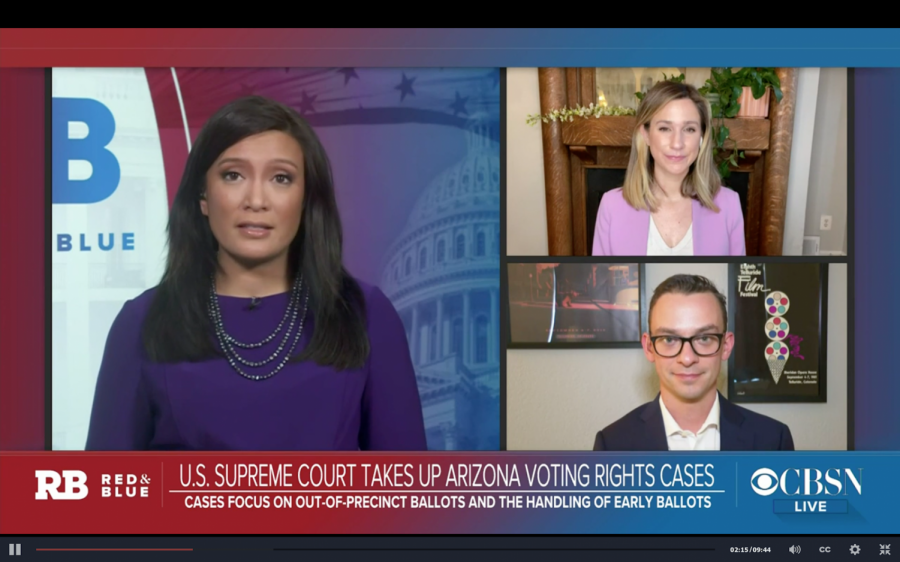The Supreme Court and the Voting Rights Act
March 25, 2021
On Tuesday, March 2nd, 2021, conservative Supreme Court justices indicated that they were going to confirm two Arizona voting laws that would make it more difficult to vote. Republicans claim that these laws are crucial in preventing voter fraud, while Democrats argue that they violate the Voting Rights Act.
The first law that conservatives are pushing to pass prohibits the counting of provisional ballots cast in the wrong precinct. The second, and arguably the more important law, prohibits the collection of absentee ballots by anyone other than a family member or a caregiver.
“I just don’t think it’s practical. There are tons of people who don’t have the money or the transportation to get places, so they rely on friends or neighbors to help drop off their ballots for them. What will those people do now?” said Kalle Ogden (‘22).
Section 2 of the Voting Rights Act was set in place to ensure that there are no voting procedures that deny a citizen the right to vote on account of race. This is the first time that the Supreme Court will consider a law that puts minorities directly at a disadvantage when it comes to voting, and many people are angry.
“What I know is that many minority groups tend to look for help from others when dropping off their ballots due to being less fortunate compared to white voters. Next to that, minority groups are actually more likely to drop off their ballots at the wrong precinct for similar reasons,” said Gianna Ghio (‘23).
After Trump’s false claims of voter fraud during the 2020 election, Republicans have made limiting voting access a much larger part of their political identity than it was before. Many Republicans attempting to pass these laws claim that easier access to voting inevitably leads to fraud.
“I don’t think voter fraud is a major issue at all. When it does happen, which is rarely, it is almost always an individual who believes they are eligible to vote when they are not eligible. This makes sense if you think about how much voter fraud you’d have to commit to swing an election. You’d need tens of thousands in a close election to swing a race, and the potential risks far outweigh the gain,” said Erik Wadkins, a history teacher at AV.
In addition to those beliefs, Republicans worry that in the hands of Democrats, ballots will be messed with. Limiting this access would essentially make the voting process run more fairly.
“I agree that voter fraud is an issue that needs to be addressed. I don’t think that basically wiping out Section 2 is a good idea, but I do think that restrictions need to be made to make it all a more just system,” said Ogden.
With conservative justices holding a 6-3 majority in the Court, the chances are likely in their favor for passing these laws. What this specifically means is still unclear, but what we know for sure is that the Supreme Court and the future of voting rights are changing before us.





